The Rice Terraces of Tegallalang: A Living Heritage
Creating an insider’s guide to Bali means venturing beyond the tourist trails to discover the authentic heart of this enchanting island. Through local connections and serendipitous moments, I’ve gathered insights that transform a simple visit into a profound cultural immersion.
Tegallalang Rice Terraces
Any insider’s guide must include the lesser-known treasures. I was lucky to discover a couple of them.
Stepping out of Ubud, I stayed two nights at a serene guesthouse near the Tegallalang rice terraces. Hosted by Wayan (a traditional first-born name in Bali) and his wife Emma, their warmth embodied the Balinese spirit.

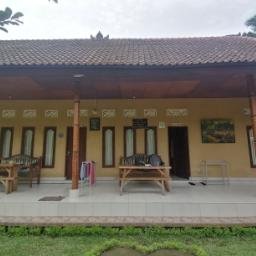
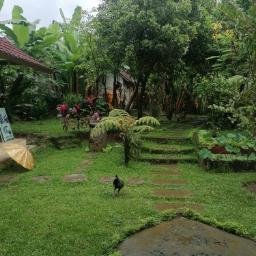
Meditation sessions by a small outdoor Buddha statue offered moments of inner peace, while exploring the nearby rice fields and a coffee plantation provided a glimpse into local agricultural traditions.
Coffee Plantation and Luwak Coffee
At the plantation, I was introduced to producing kopi luwak, one of the world’s most unique and expensive coffees. This coffee is made using beans partially digested and excreted by the Asian palm civet, locally known as luwak. The beans are carefully collected, cleaned, roasted, and ground to create a rich, smooth brew with a distinctive flavor profile. It was fascinating to witness the manual methods used at the plantation, from bean selection to roasting, showcasing the labor-intensive process behind this rare beverage.
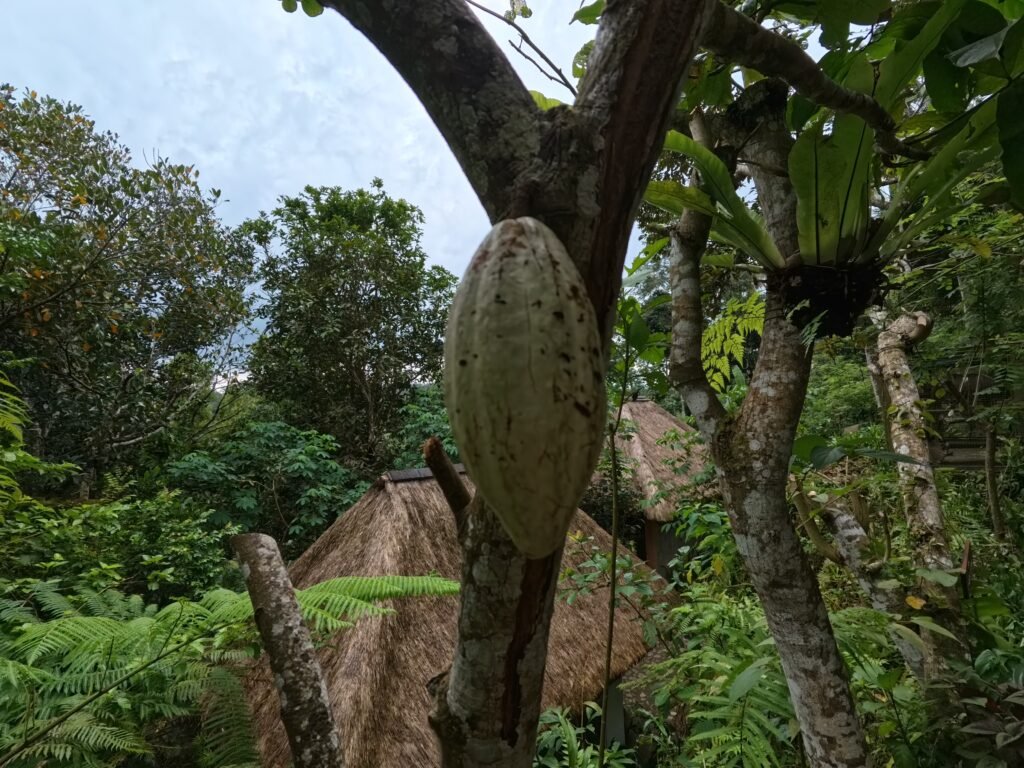
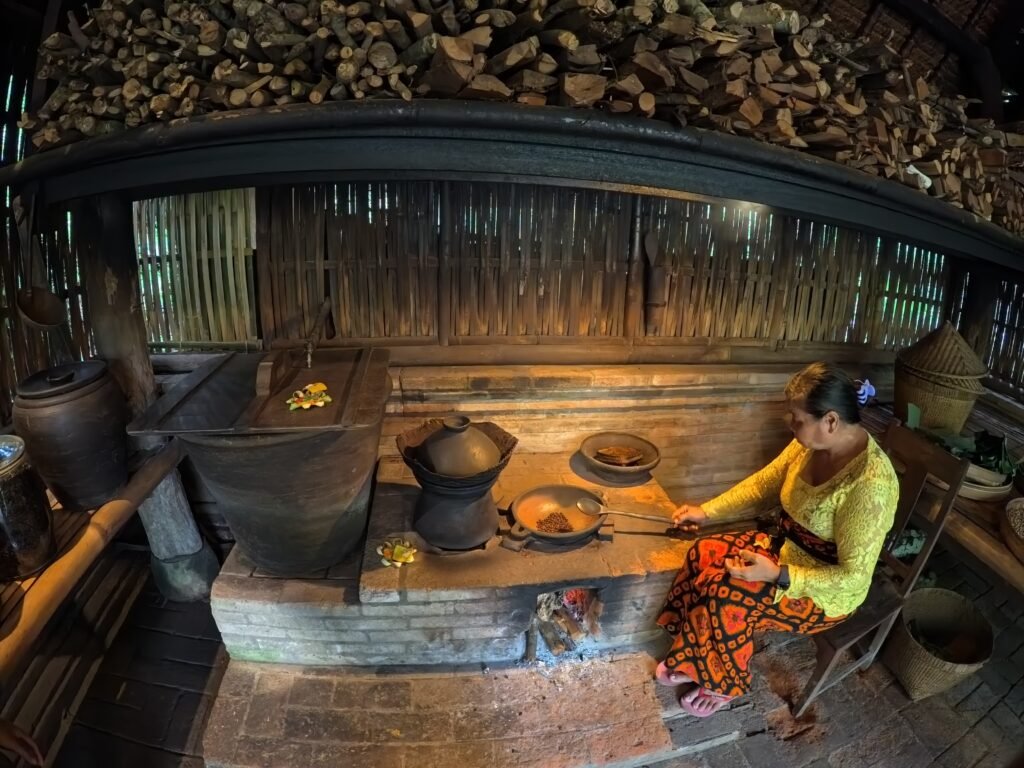


Tasting the luwak coffee was an experience even if I wasn’t so impressed. Its earthy, mellow flavor stood out from conventional brews. While the ethical concerns around its production are widely debated, the plantation I visited assured visitors of humane practices, which made the experience more reassuring.
Local Coconut Palm Wine
Later, I braved a torrential rainstorm to explore non-touristic rice paddies near the village. I also learned about the local production of coconut palm wine, a fermented beverage collected from tree flowers. Sampling the cloudy white drink was an unusual but memorable addition to my culinary.




Purification Ceremony
On the second day in the morning, accompanied by Wayan’s cousin, I visited a holy spring water site for a purification ceremony. This serene and sacred location, less crowded than other alternatives in the area, offered a deeply personal experience. Participating in the ritual left me feeling connected to Bali’s spiritual roots.



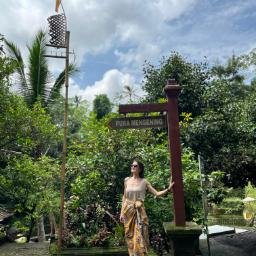
Later that day, I explored a local market, picking up fresh fruit to share with my guesthouse neighbors and hosts. I also purchased a traditional sarong with intricate designs—a beautiful reminder of Bali that will accompany me throughout my travels.
In the evening, I met two remarkable individuals: a Lithuanian woman living in Norway and a young man from Singapore who was closing his business after seven years. Our conversations were rich with insights about life in Bali and the transitions it brings. The man’s melancholy reflected Bali’s profound changes over the past decade, driven by its evolving economy and the influences of global commerce.
Living the Bali Way
Back in Ubud, I embraced a more relaxed pace. Days were filled with relaxation, writing, spa treatments at Body Works, and strolls through artisan markets. Meeting an Italian designer who blended Balinese and Venetian styles was a highlight, as was discovering eco-conscious brands prioritizing sustainable practices.
My culinary journey was equally rich and centered around vegan and Ayurvedic cuisine. Standouts included Wild Vegan, where I befriended the Michelin-starred chef Denis, and Sayuri Healing Food, which doubles as a hub for wellness events.

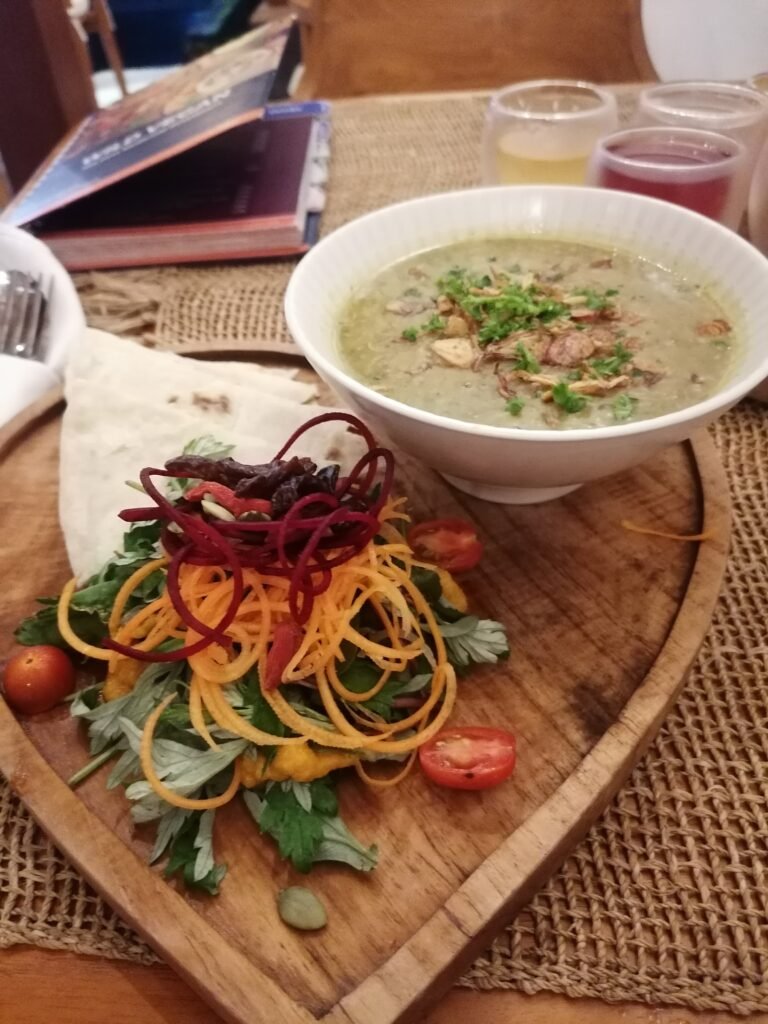


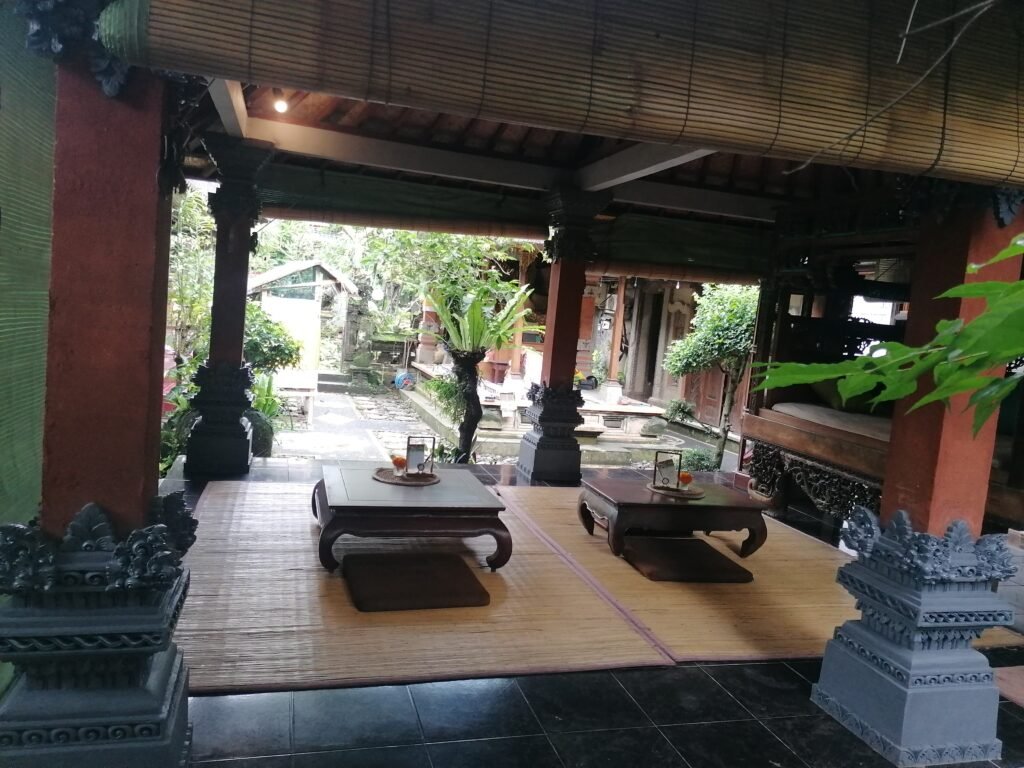
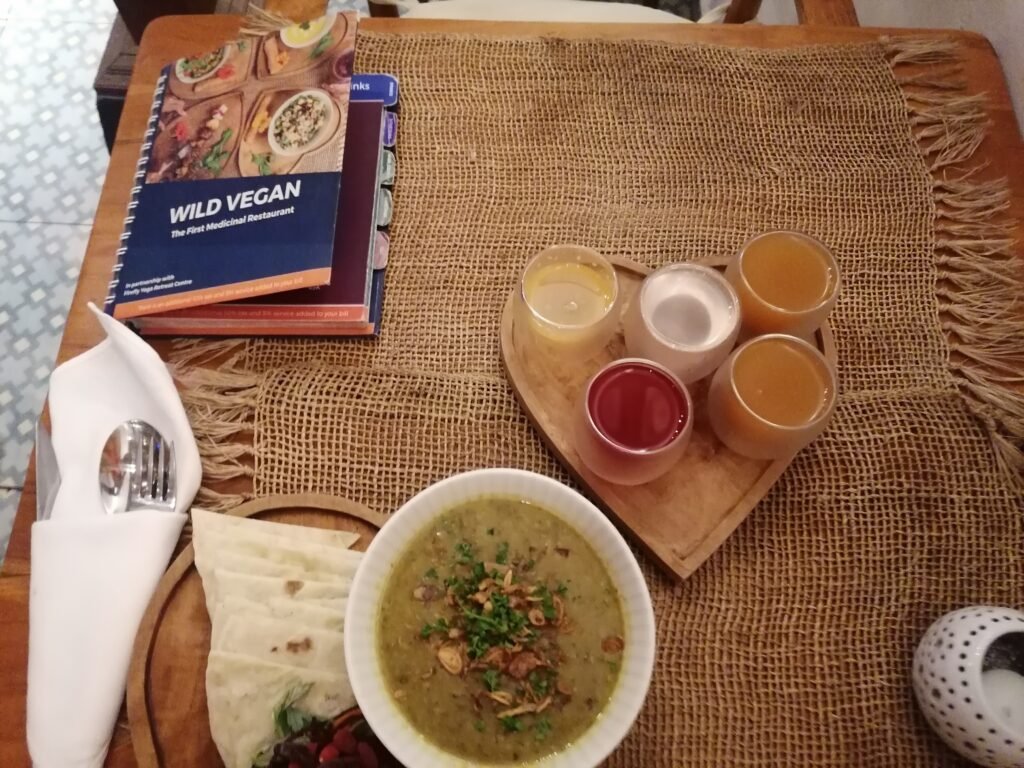
My Top Vegan Restaurant Picks in Ubud
- Wild Vegan
My absolute favorite in Ubud, Wild Vegan, is a place where wellness and flavor come together perfectly. This restaurant is renowned for its emphasis on healing and medicinal foods, offering creative, plant-based dishes that are as nourishing as they are delicious. The welcoming atmosphere and thoughtful menu make it an unforgettable dining experience. - Sayuri Healing Food
Whether you’re a experienced Vegan or practicing yoga, another standout on my list you probably would love. Sayuri Healing Food is a lively café serving vegan and raw dishes with a focus on health and community. It’s not just a place to eat—it’s a hub for yoga, live music, and workshops, making it a gathering spot for like-minded souls. - Dapur Usada
If you love Ayurvedic traditions, Dapur Usada is just for you! Located in Ubud, offers a unique fusion of Indonesian and Indian Ayurvedic cuisines. Their meals are designed to nourish both the body and mind, and the tranquil environment adds to the holistic experience.
For those seeking an authentic and local experience, Bali’s warungs are a must-try. These small, family-owned eateries serve traditional Indonesian dishes at incredibly affordable prices. Each warung has its own unique charm and flavors, ranging from spicy sambal to hearty rendang. Exploring these hidden gems is a wonderful way to discover Bali’s rich culinary traditions.
A Spiritual Farewell
Temple Ceremony
As my stay in Bali drew to a close, I had the extraordinary privilege of participating in a temple ceremony at my Gedong Bali homestay, led by the priest and owner, Mr. Mangku. This sacred event, which takes place only once every 210 days, was a deeply significant moment in Balinese Hindu tradition.
The preparations for the ceremony began days in advance, with family members and locals gathering to craft intricate offerings made of fruit, flowers, banana leaves, and rice. The temple itself was adorned with vibrant decorations, creating an atmosphere of reverence and celebration.

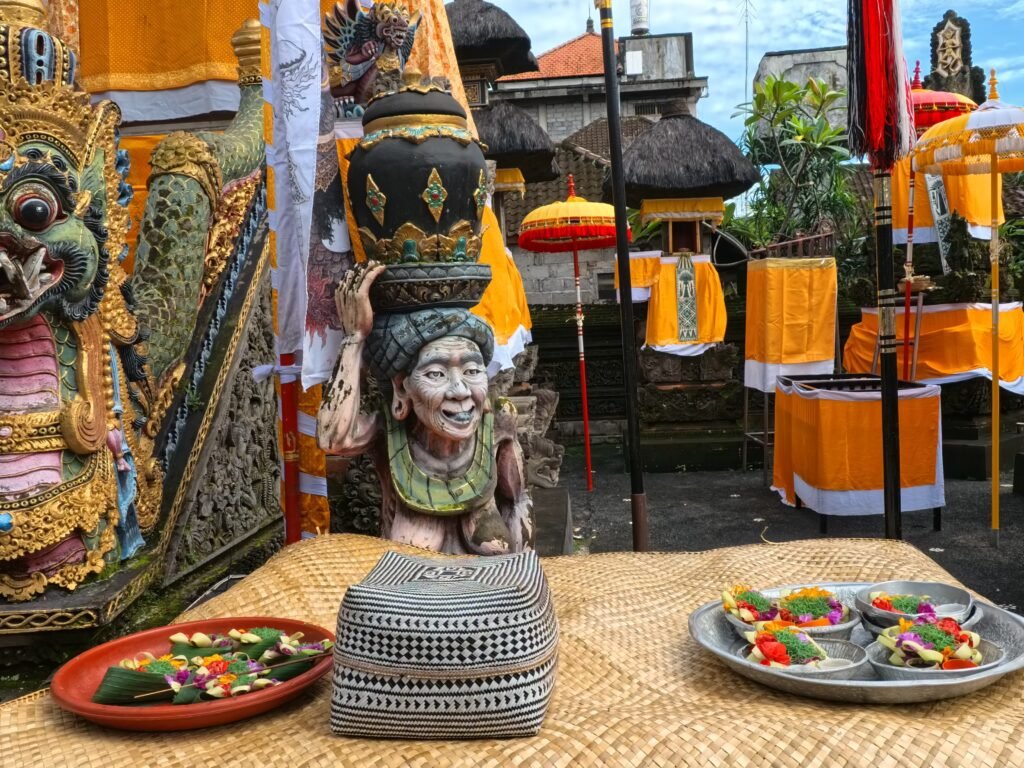


On the day of the ceremony, I was honored to be the only foreigner present. Guided by Mr. Mangku, I participated in the rituals, which included prayers, blessings, and purification rites. The rhythmic sounds of the gamelan, the fragrant incense wafting through the air, and the harmonious chants and traditional music created an almost otherworldly experience.
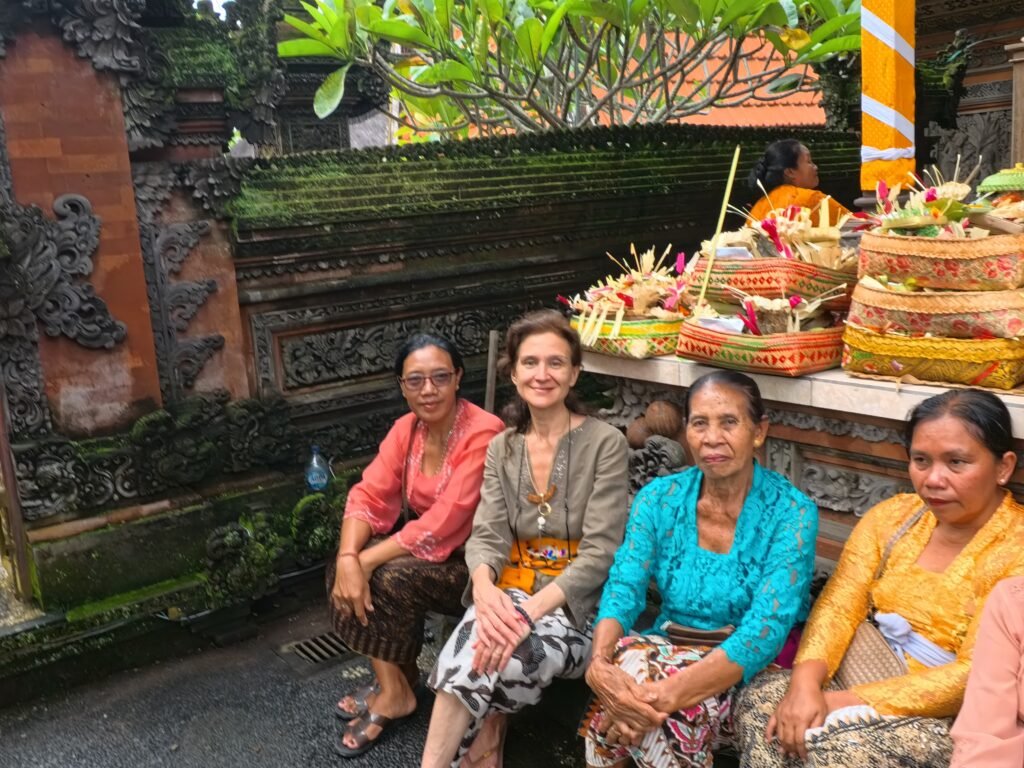

The ceremony was a profound display of devotion and community, showcasing the connection between the Balinese people and their spiritual beliefs. Witnessing in this rare event allowed me to appreciate Bali’s culture on an intimate level, leaving a lasting impression of the island’s unique harmony between the sacred and the everyday.
Traditional Performance
On the second day of the ceremony, I witnessed a captivating traditional performance, featuring Balinese dances, theater, and elaborately designed masks. The rhythmic movements of the dancers, the dramatic storytelling, and the intricate costumes brought the island’s rich cultural heritage to life. It was mesmerizing to see how these performances are seamlessly woven into the spiritual fabric of the celebration, enhancing the sense of community and devotion.


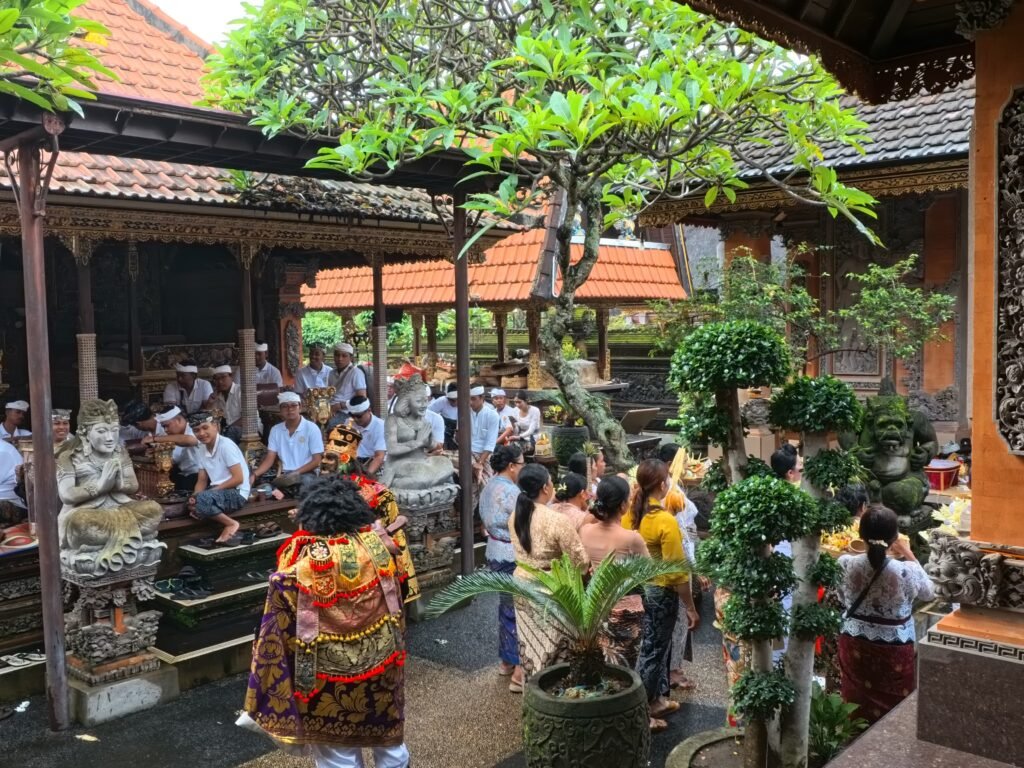
Bali’s unique blend of spirituality, art, and serene landscapes, left an indelible mark on my journey. As I packed my bags to head to India, I carried a profound sense of connection and inspiration.
Final Tips An Insider’s Guide to Bali
Places To Meet Local Life
Bali’s charm lies in the hidden gems and serendipitous moments that reveal the island’s true spirit. Here are some final tips to make your visit unforgettable:
- Immerse Yourself in Local Traditions
- Bali’s temple ceremonies are profound cultural experiences. While they often align with specific periods in the Balinese calendar, staying in a homestay or connecting with locals can provide unique opportunities to witness these spiritual gatherings. I was fortunate to participate in a rare 210-day ceremony, complete with traditional performances, thanks to the guidance of my host priest.
- Opt for Homestays Over Resorts
- Staying in family-run accommodations offers an authentic glimpse into daily Balinese life. You’ll enjoy personal connections, traditional breakfasts, and insights into local customs that big hotels simply can’t provide.
- Explore Less-Touristic Spots
- Beyond famous landmarks, visit lesser-known places like local rice paddies, non-commercialized temples, or villages like Amed for quiet beaches and snorkeling. Guided by my hosts, I discovered remote areas that offered serenity and deeper connections with nature.
- Seek Out Local Markets
- Markets are more than shopping hubs—they’re cultural experiences. Look for vibrant produce, handmade crafts, and textiles like sarongs with traditional designs that hold significance in rituals and everyday life.
- Participate in Art and Craft Workshops
- Dive into Bali’s artistic soul by joining workshops in batik-making, wood carving, or painting. These hands-on experiences provide a meaningful connection to Balinese heritage.
Simple General Insider’s Advices
- Stay Flexible and Open to Serendipity
- Bali thrives on spontaneous moments. Whether it’s meeting locals, stumbling upon an unplanned ceremony, or tasting a rare dish, keeping your itinerary flexible allows these magical experiences to unfold.
- Respect the Culture and Environment
- Bali’s unique blend of spirituality and nature deserves reverence. Dress modestly when visiting temples, follow local customs, and be mindful of your ecological impact by avoiding single-use plastics and supporting eco-friendly initiatives.
While my focus was on Ubud’s tranquil atmosphere and its spiritual offerings, these recommendations highlight Bali’s rich variety, catering to adventurers, spiritual seekers, and those seeking cultural immersion.
By embracing the highlights and the off-the-beaten-path treasures, you’ll leave Bali with memories, and a piece of its soul that stays with you forever.
